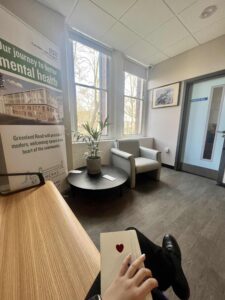Coming to the end of my year-long NHS Clinical Psychology placement in London, I have compiled a few tips and things I wish I knew before starting my placement.
1. It is normal to take time to get used to a new environment
During the first few months of my placement, there are times when I felt lost as it was difficult to adjust to the London and working lifestyle. In London, everyone’s pace is a lot faster. Although it is a vibrant city, it can be overwhelming at time. Remember to take your time and know that it is ok and normal to have an adjustment period.
2. How to achieve work-life balance
There is a great work-life balance in my workplace. My supervisor and team always discourage us from replying to emails or working after the working hours. Having a clear boundary is beneficial in the long run to avoid burnouts. Setting a strict and professional boundary between work and personal life is especially important in the clinical field as the cases you come across can sometimes be quite heavy.
For example, I set a time limit of 20 minutes after work to allow myself to still be thinking about work-related responsibilities. After that, I would shift my attention to my personal life such as my hobbies, spending time with friends, doing chores etc. I also often go to the gym after work to create a transition headspace between work and my personal life.
3. Find a new hobby during your spare time
While some placement can be very demanding, some may allow you to have more spare time. I work 4 days a week for my placement, so I have a 3 days long weekend. Most students at university will use their spare time to revise and work but during my placement when I am off work, I am able to use the spare time to do things that I enjoy.
For example, I have joined more workout classes with the “classpass” app in London. Joining pilate classes at various studios is really fun! To enhance your CV, you may volunteer at a hotline, join online courses such as a mental health first aid course or counselling course. The NHS often funds employees to attend some classes or summits so remember to check them out!
4. If your placement is unpaid, find a part-time job early on
Most psychology placement is unpaid, and it can be difficult to sustain yourself especially in locations like London. When I first started my placement, there was quite a lot of adjustment in the team, so I had fewer responsibilities. It would be great to browse and apply for weekend part-time jobs earlier on as things can pick up rather quickly. I have got a lot busier in my placement from January as most projects have started. I also had to manage university assignment and dissertation from March so it was rather difficult to get a job by then for me.
5. Keep a list of your achievements during your placement
After a whole year placement, it can be hard to recall all the responsibilities, tasks, projects you have done. I have a document keeping the things I have done well and lessons I have learnt. This can be extremely helpful to look at in the future when you do the university goal-setting assignments and also for future interview preparation.
6. Keep contact with people you have met in your placement
I have written down people’s email and contact details before leaving my placement. This can be really helpful when you need some advise for your career path. Do not waste the connection you have made in this year-long placement. You can always politely ask some to review your job/master/doctorate application in the future!
7. Take initiative!
In the NHS, people are often very busy so it can be difficult for them to always bear you in mind and allocate the exact task you want. If you would like to learn more though taking up more projects and responsibilities, actively ask for opportunities!
When you have a chat with your colleague about how their workday has been, don’t be afraid to also show your initiative by asking “It sounds like you are having a busy day. Would you need help with anything? Is there anything I can help with?”.
8. Manage your leave evenly
In my placement I have quite a lot of annual leaves. In contrast to university where there are rigid holiday dates for everyone, in a workplace you would have to manage your leave on your own. With so much flexibility, it was hard to know how to evenly manage my leave throughout the year. I ended up realising I have saved too much annual leave towards the end of my placement. I would recommend planning your leave early on into the placement to even them out.
9. Attend the work socials
There are quite a lot of work socials and drinks at my workplace especially during Christmas. This is a great time to bond with your colleagues and build a great relationship. You can get to know them better and improve your networking skills. It can be nerve-recking in the beginning but afterwards you may find them very fun once you get to know most people.
10. Do not be afraid of asking for help
When I was a bit stuck with formulating my dissertation topic, I have made use of my supervision with my placement supervisor. For instance, we would discuss on a piece of research, feasibility of data collection etc. I have also reached out to the clinical psychologists for advice as they are usually experienced in research. People are normally very keen and happy to help so do not worry about asking for some help.
I hope these tips and tricks are helpful for you to make the most out of your placement!
Respond

